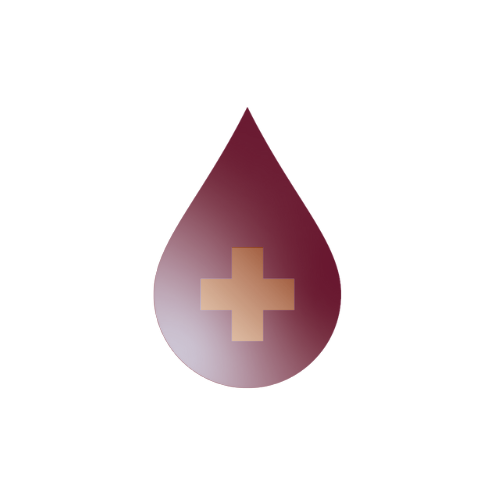
Needle phobia exists on a spectrum, from natural discomfort to intense physical reactions. What may start as a healthy sense of caution can evolve into a strong fear response that activates the body’s autonomic nervous system, often leading to nausea, dizziness, or even fainting. This creates a self-reinforcing cycle: anxiety heightens the perception of pain, which increases avoidance and strengthens the phobia over time.
Our structured five-session plan uses Cognitive Behavioral Therapy (CBT)—a proven, evidence-based approach for treating medical phobias. You’ll work through both the cognitive and physical aspects of needle fear using psychoeducation, applied tension techniques, relaxation strategies, and gradual exposure. Each session builds on the last, helping you move from understanding your body’s fear response to confidently managing it in real-life scenarios.
To support this work, we’ve integrated Thimble™ technology into the plan. The company’s Prepare patch helps numb the injection site before a procedure, while the Recover patch reduces soreness afterward. This kind of physical support reinforces the coping strategies you’ll learn in therapy.
Sessions are delivered virtually, with limited in-person availability.
Courage is resistance to fear, mastery of fear, not absence of fear. — Mark Twain
More than 60% of people report some fear of needles. But when that fear begins to interfere with important medical care, it may be time to take a more targeted approach.
Common indicators for this plan include:
Needle phobia often shows up differently in kids and teens. Young children may cry, resist, or try to escape during procedures. School-aged children might fake symptoms to avoid appointments or create elaborate excuses to skip care.
For teens, needle fear can be especially difficult to manage as they begin taking more responsibility for their own health. They may argue, disengage from providers, or stay quiet about their concerns. Left untreated, these patterns can interfere with future healthcare decisions and independence. That’s why early intervention—using age-appropriate strategies—is especially valuable during childhood and adolescence.
Needle phobia responds well to CBT when both the mental and physical sides of fear are addressed together. Treatment begins with an in-depth assessment and education around how anxiety can amplify pain.
From there, your therapist will help you build key skills, like applied tension to prevent fainting and relaxation strategies to calm your nervous system. You’ll practice these techniques in gradual, manageable steps, working up to real-life situations so you feel more confident and in control.
For children, sessions include play-based learning, simple explanations, and parental coaching to help with practice at home. Teens are supported with tools that respect their growing independence while giving them concrete ways to cope. Adults often focus on identifying and reframing catastrophic thinking as well as building confidence in managing necessary medical care.
The integration of Thimble products reinforces your progress since it reduces discomfort and helps reshape your experience of medical care in a positive, empowering way.
Therapy Lab clinicians hold advanced degrees in clinical psychology, clinical child/adolescent psychology, and related science-based clinical practices, with specialized training in evidence-based treatment of specific phobias. By the conclusion of this five-session protocol, clients typically experience significantly reduced anxiety and greater confidence in managing necessary medical procedures involving needles. To learn more, please see the resource below.